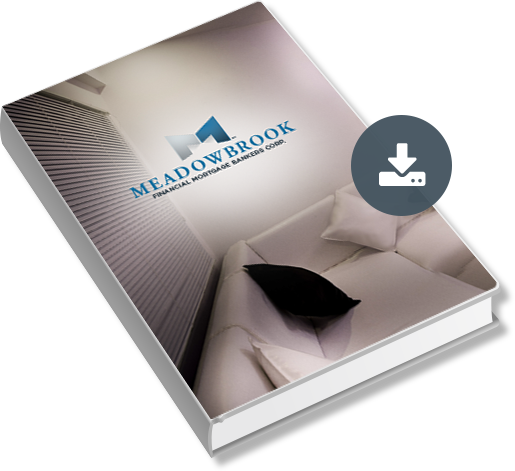Search Blog Posts by Blog Topic
What’s the Effect of Credit Scores on Mortgages?
September 9, 2023
Most American home buyers need to get mortgages to purchase homes, which is where their creditworthiness enters the picture. Even though lenders might rely on different eligibility criteria when making lending decisions, some aspects remain the same. For example, you may expect your lender to look at the information you provide in your application and your credit score to determine if it should approve your mortgage. In addition, the effect of credit scores on mortgage rates also needs your attention.
Effect of Credit Score on Mortgage Applications
Mortgage providers look at applicants’ credit scores to determine how much risk they pose as borrowers. By going through your credit report, a lender is able to take a look at your credit history and see how well you’ve managed your credit in the past. If you’ve missed making payments, have made late payments, or have delinquent accounts, the same will show on your credit report. Any such instance has a negative impact on your credit score.
If you have a poor credit score, getting a lender to approve your application might seem like an uphill task. A good or excellent score, on the other hand, presents you with way more alternatives.
What If You Have No Credit Score?
While getting a mortgage in the absence of a credit score or credit history is difficult, it’s not impossible. However, you’ll typically get only a handful of options from which to choose. This is because lenders have no way of determining how well you handle credit, and if you’ll repay the mortgage in a timely manner. If you find a lender willing to give you a mortgage in such a scenario, you may expect to pay a higher-than-usual interest rate. In addition, you might not find the type of mortgage you seek.
If you don’t have a credit history yet, you may consider building it before applying for a mortgage. This will give you access to more options and you may also benefit from a lower interest rate.
Looking to Purchase a Home on Long IslandContact Us
Minimum Credit Score for Mortgages
The type of mortgage you wish to get has a bearing on the minimum credit score you need to qualify. In most cases, you may qualify if your credit score is 620 or higher. If you’re looking for mortgages that offer flexibility in this regard, you may benefit by checking what different government-backed programs have to offer. For instance, you may qualify for a United States Department of Agriculture (USDA) loan with a credit score of 640 or higher.
Typically, these are the minimum credit scores you need to qualify for the following types of mortgages:
- Conforming (conventional) loans. 620 or higher
- USDA loans. 640 or higher
- VA loans. 620 or higher
- FHA loans. 580 or higher with a 3.5% down payment, and 500 or higher with a 10% down payment
- Jumbo loans. 700 or higher
What’s a Good Credit Score for a Mortgage?
Mortgage lenders across the U.S. use different versions of the standard FICO score when making lending decisions. The score range varies from 300 to 850. The different models include:
- FICO Score 2 (Experian/Fair Isaac Risk Model v2)
- FICO Score 4 (TransUnion FICO Risk Score 04)
- FICO Score 5 (Equifax Beacon 5)
It’s common for mortgage providers to receive a single consolidated report from the three credit bureaus along with the corresponding credit scores. The range that distinguishes the good from the bad is as follows:
- 300 to 579 – Poor
- 580 to 669 – Fair
- 670 to 739 – Good
- 740 to 799 – Very Good
- 800 to 850 – Excellent

Effect of Credit Score on Mortgage Rate
Lenders look at your credit score to determine the risk you present as a borrower and your ability to keep up with payments. In addition, they also use this number to arrive at an interest rate that can help offset the risk. When getting a mortgage, your credit score has a significant impact on the loan’s terms. More often than not, people with good and excellent credit scores get the lowest interest rates, and the converse holds true as well. Bear in mind that the down payment you make also has an effect on your mortgage’s interest rate.
Even a seemingly small difference in interest rates can have a significant effect on how much you end up paying as interest over the course of the loan term. The data that follows comes from myFICO, highlighting mortgage rates by credit score and showing how your monthly payments will vary if you get a $200,000 30-year fixed-rate mortgage. The amounts indicate national averages. The mortgage rates are effective as of August 31, 2023.
FICO Score – 760 to 850
APR – 6.751%
Monthly payment – $1,297
FICO Score – 700 to 759
APR – 6.973%
Monthly payment – $1,327
FICO Score – 680 to 699
APR – 7.150%
Monthly payment – $1,351
FICO Score – 660 to 679
APR – 7.364%
Monthly payment – $1,380
FICO Score – 640 to 659
APR – 7.794%
Monthly payment – $1,439
FICO Score – 620 to 639
APR – 8.340%
Monthly payment – $1,515
The difference in monthly payments between the top and bottom tiers stands at $218. Over the course of 30 years, this will amount to more than $78,000.
Looking to Purchase a Home on Long IslandContact Us
Other Factors That Affect Mortgage Rates
While your creditworthiness plays an important role in the interest rate that applies to your mortgage, lenders look at other factors too. Besides, mortgage rates keep changing based on the Fed’s monetary policy, economic growth, and inflation. When it comes to what a lender looks at to determine interest rates, the factors that make a difference include:
- Location of the home. A report released by the Federal Reserve Bank of Dallas indicates that location plays an important role in mortgage rates, which tend to vary from one metro to the next. This, incidentally, is also the case with rural areas.
- Loan amount and price of the home. If you require a rather small or very large loan amount, you may expect to pay a higher interest rate. The amount you need to borrow is essentially the difference between the home’s selling price and the down payment amount.
- Down payment. Typically, making a large down payment comes with a lower interest rate. This is because your lender will view you as a low-risk borrower, given the equity you hold in your home. If you’re comfortable making a down payment of 20% or higher, doing so might work well for you from the long-term savings point of view.
- Loan term. Shorter loan terms tend to come with lower interest rates when compared to longer terms. However, they require that you make larger monthly payments.
- Debt–to-income (DTI) ratio. Your DTI ratio indicates how much of the money you earn each month goes toward your debt payments. Mortgage providers want this number to be 43% or lower. Lenders view low DTI ratios with favor, which may then translate into a lower interest rate.
- The lender you select. Interest rates may vary even for the same type of mortgage depending on the lender you select. Mortgage providers charge different interest rates based on factors like overhead costs, experience, reputation, and profit margins. Bear in mind that the lender that provides the lowest rates is not necessarily the best because you also need to account for customer service and flexibility in terms.
How to Improve Your Credit Score?
If your credit score is not up to the mark, consider improving it before applying for a mortgage. Doing this helps open up more avenues and you may also benefit from a lower interest rate. Following a few simple steps can set you on the right path.

Review Your Credit Reports
Start by getting a copy of your credit reports from the top three credit bureaus – Experian, Equifax, and TransUnion. Go through each carefully to determine why your credit score is low. There are instances when credit reports carry erroneous information, so keep an eye out for these. If you find any error, contact the credit bureau and request it to make the required correction.
Pay Your Bills on Time
Among the different factors that affect your credit score, payment history takes the top spot, accounting for 35%. Given the effect this factor has, it’s crucial that you pay all your bills on time. You may keep track of your bills by creating some kind of filing system or setting alerts. Automatically paying your bills by linking them to your bank account is ideal. You may also consider paying your bills using a credit card to earn rewards and improve your credit score, but tread this path only if you’re sure you’ll be able to pay off your credit card balance in full every month.
Pay Down Balances
Your credit utilization ratio, which indicates how much of your available revolving credit balance you’ve used, has a 30% weightage in your credit report. For example, if you have three credit cards with a combined balance of $15,000 and owe a total of $7,500, your credit utilization ratio is 50%. From the credit score point of view, this number should be 30% or lower.
If your credit utilization ratio is over 30%, try to pay off as much of the debt you owe to bring this number down. Getting it to around 10% is ideal if you wish to improve your credit score. Another way to improve your credit utilization ratio is to ask your credit card providers to increase your credit limit. However, it’s best that you refrain from using more credit until you apply for a mortgage.
Fix Delinquencies
Fixing a minor credit card delinquency like missing a payment is fairly easy but ignoring any bill over a prolonged period might have serious implications. While the issuer of the credit will close your account, your debt might end up with a collection agency and you might risk facing garnishment of your wages. Besides, its mention might stay on your credit report for up to seven years.
Paying off debt that’s with a collection agency might have a positive effect on your credit score depending on the model in question. If you have serious delinquency, you should ideally start making payments as quickly as possible. Contact the issuer of your card to check if it has any hardship program. Consider settling the debt if you’re okay with making a lump sum payment. Getting in touch with a credit counseling agency to get on a debt management plan might also be an option.
Don’t Close Old Accounts
The length of your credit history has a 10% weightage in your credit score, and the longer it is, the better. As a result, if you have any old account you plan to close, think again because doing so may have an adverse effect on your credit history’s length. Closing a relatively new account, on the other hand, will not have as damaging an effect.
Looking to Purchase a Home on Long IslandContact Us
Don’t Apply for New Credit
New credit accounts for 10% of your FICO score, and each time you apply for new credit, your credit score goes down by a few points. As a result, it’s best that you don’t apply for any form of credit until you get your credit score on track.
Conclusion
Having poor creditworthiness and a low credit score might work as a dampener if you wish to get a mortgage. This is because lenders view applicants from this bracket as high-risk borrowers. Besides, even if you qualify for a mortgage, your credit score still plays a role in the interest rate you get. If you have an average credit score, you may consider improving it before applying for a mortgage because it can pave the way for a better deal.
Now that you know the effect of credit scores on mortgages, determine if yours is good enough to apply for a home loan. If so, consider getting in touch with a mortgage provider to find out if you qualify for preapproval. You may then look for homes based on the amount for which you qualify.
Disclaimer
The payment on a $300,000, 30-year fixed rate loan at 6.50% and 75% loan-to-value (LTV) is $1,896.20. The Annual Percentage Rate (APR) is 5.692%. Payment does not include taxes and insurance premiums. If you add taxes and/or insurance to your mortgage payment then the actual payment will be greater. Some state and county maximum loan amount restrictions may apply. This is an example and is for illustrative purposes only.
Ready To Get Started?
Fill out the form below and a mortgage professional will get back to you shortly.

First Time Homebuyer’s Guide
Considering homeownership but not sure where to begin? The Meadowbrook Financial Mortgage Bankers Corp. guide to home buying will make the process easy all in one packet.
Recent Articles

An In-Depth Condo Buying Guide
2 July, 2025One reason why many first-time homebuyers prefer condos over single-family homes is that they are typically more affordable and give them the means to start…

Should You Buy an Under-Construction, New Build, or…
18 June, 2025The dream of owning a home often comes with having to make an array of decisions, and perhaps none is more crucial than choosing the…

How Do Pets Influence Homebuying?
1 May, 2025Adding a furry friend to your family can bring so much joy to your life. Whether it’s a dog, cat, bunny, or other, they’re sure…


